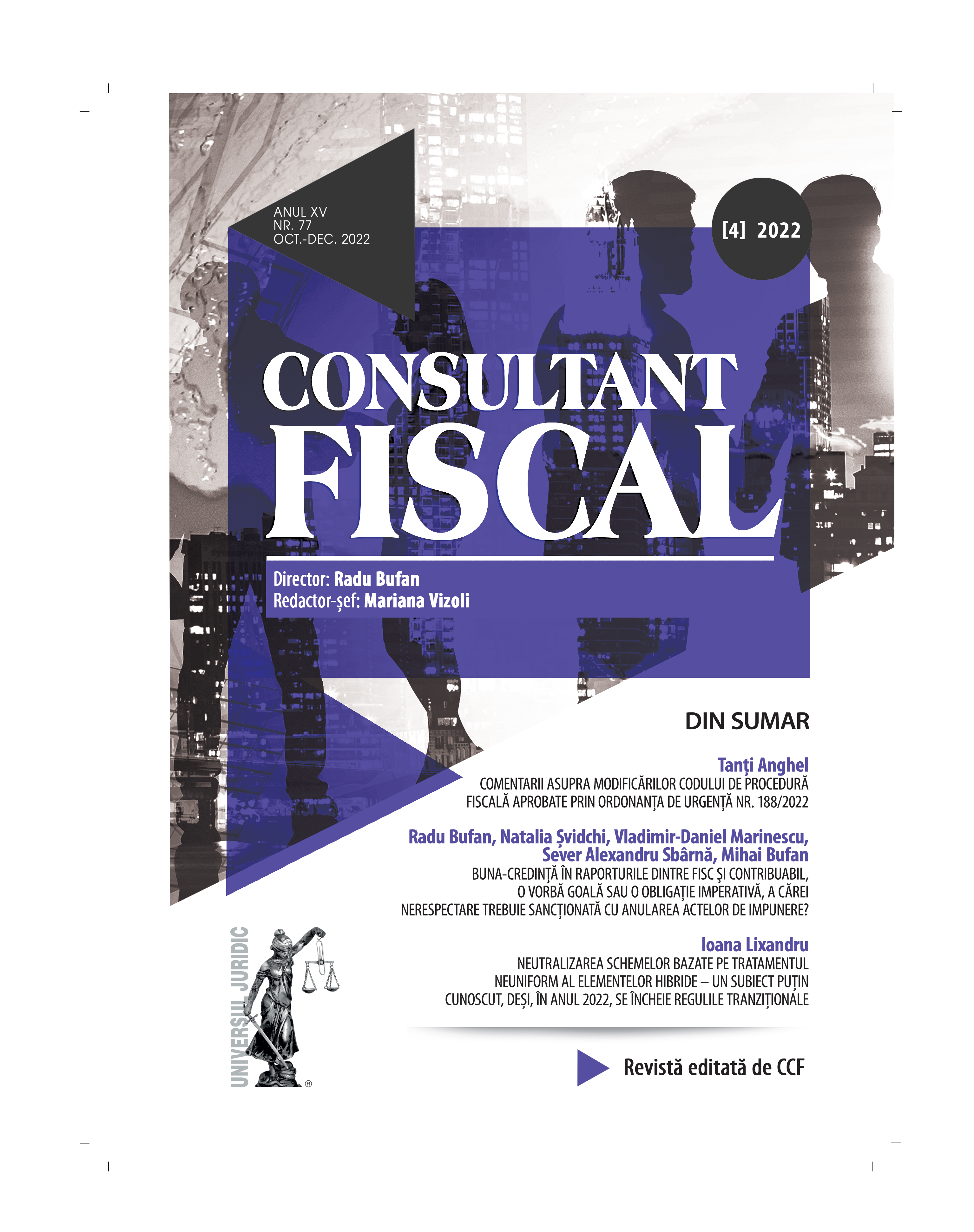Neutralizarea schemelor bazate pe tratamentul neuniform al elementelor hibride – un subiect puțin cunoscut, deși, în anul 2022, se încheie regulile tranziționale
Neutralization of schemes based on non-uniform treatment of hybrid elements – a vaguely known subject, even though transitional rules end in 2022
Author(s): Ioana LixandruSubject(s): Law, Constitution, Jurisprudence, National Economy, Civil Law, Public Administration, Fiscal Politics / Budgeting, ICT Information and Communications Technologies, EU-Legislation
Published by: Universul Juridic
Keywords: non-uniform treatment; hybrid items; BEPS actions; EU directives; associated enterprise; structured arrangement; deduction without inclusion; financial instrument; double deduction;
Summary/Abstract: Over the years, several BEPS initiatives have been adopted in Member States' legislation through European directives. Currently, the focus is on the provisions of the Two Pillar Solution to address the fiscal challenges of the digital economy. But there are initiatives that have been transposed into national law for several years and have been little discussed. Although the transitional rules in the Tax Code on the non-uniform treatment of hybrid items end on 31 December 2022, this topic still remains vaguely known. The provisions were transposed into domestic law by Ordinance No 6 of 2020, two years after the transposition of other provisions on tax avoidance practices (e.g. limitation of interest deductibility, exit taxation, general anti-abuse rule, controlled foreign company rule), and are in force since 3 February 2020. The gap occurred because the provisions were transposed by two directives: Directive 2016/1.164/EU (where only two paragraphs on hybrid elements were mentioned) and Directive 2017/952/EU (where the provisions are detailed). In the following, we briefly draw attention to the emergence of these concepts and their impact for companies, as well as providing examples developed by the OECD.
Journal: Revista Consultant Fiscal
- Issue Year: 2022
- Issue No: 04
- Page Range: 30-34
- Page Count: 5
- Language: Romanian
- Content File-PDF

